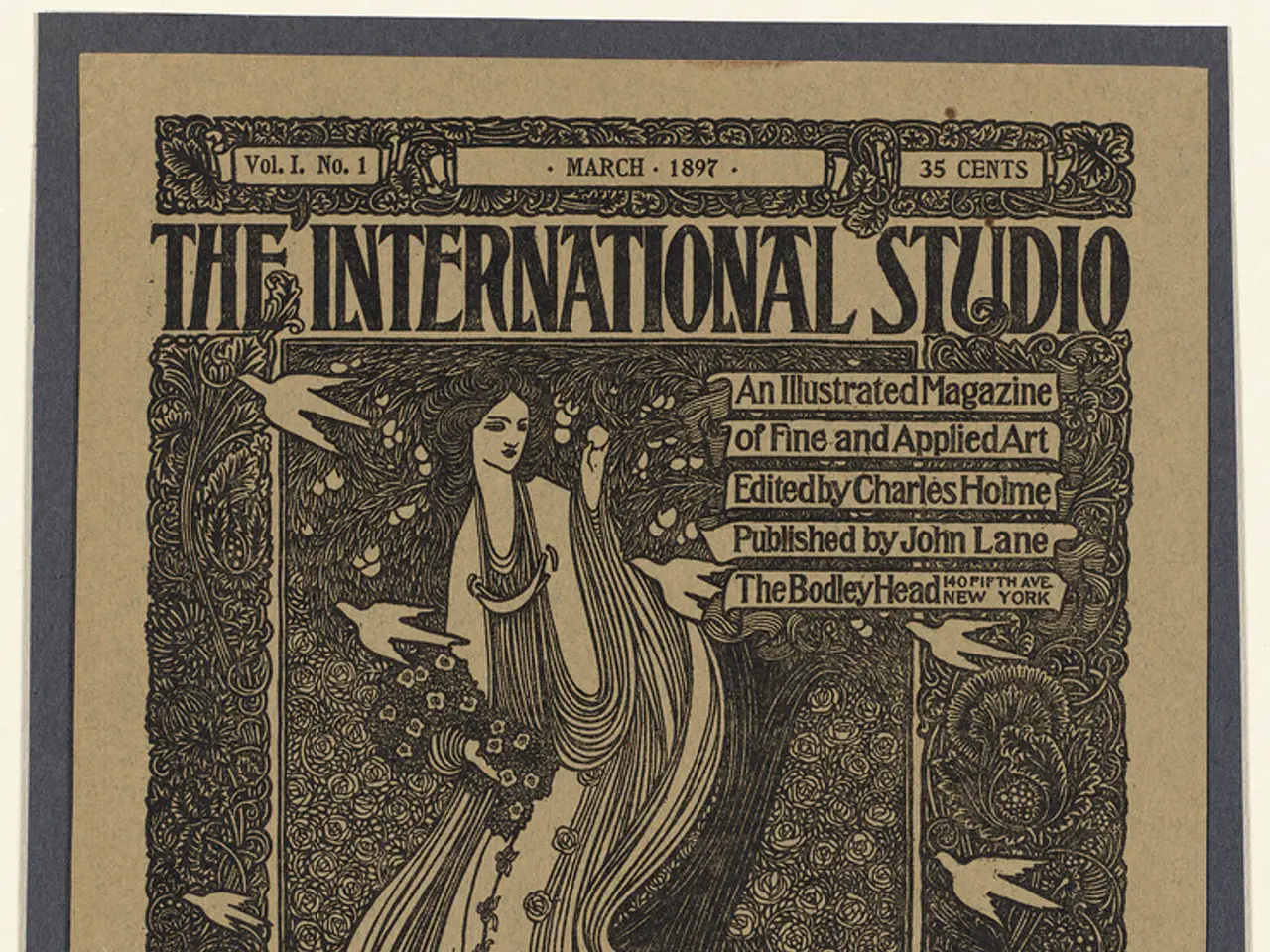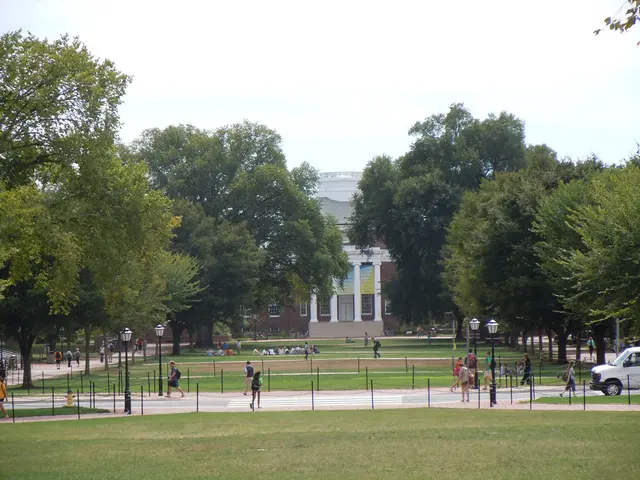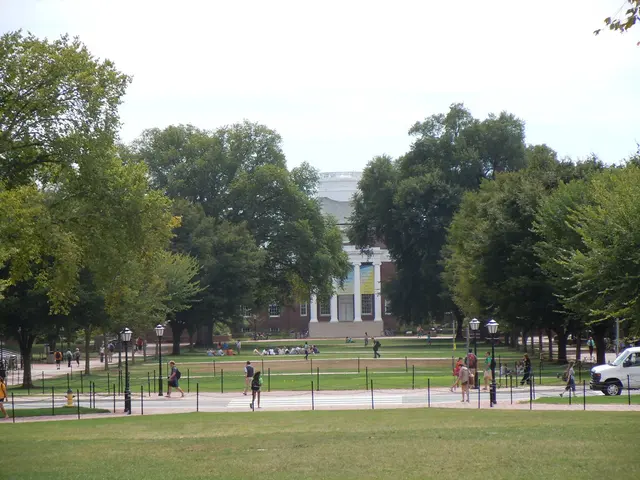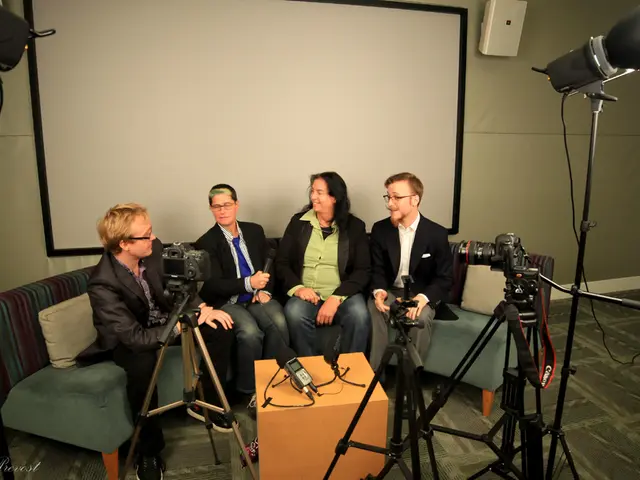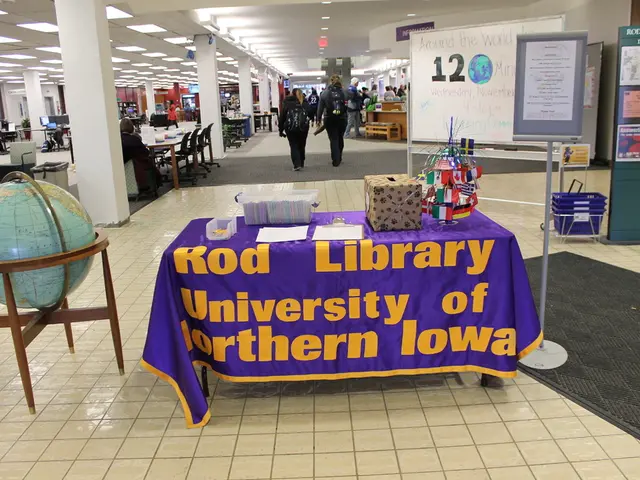Young Chinese women from Generation Z are adopting a centuries-old script, marking a revival of ancient tradition.
In the heart of China, a unique script known as Nushu is experiencing a renaissance, captivating the interest of a new generation of Chinese women and cultural preservationists alike.
Nushu, a phonetic script created exclusively by women around 400 years ago in Jiangyong County, China, was developed as a secret form of written communication since women were traditionally excluded from formal education and literacy in standard Chinese characters[1][2][3]. It emerged in the 17th century and allowed women to write messages, poems, and letters to each other using a simplified, curved script adapted from Chinese characters but distinct and accessible only to women[1][2].
The significance of Nushu lies in its role as a unique cultural and linguistic expression of female solidarity and resistance within a patriarchal society that restricted women’s social and educational opportunities. Nushu was not only a practical tool for communication but also a medium for emotional expression, often used in embroidered poems, letters, and personal narratives that conveyed women's experiences, sorrows, hopes, and mutual support[4].
In recent years, there has been a modern revival of Nushu, particularly embraced by China's Gen Z women and cultural preservationists, who see it as a symbol of female empowerment and cultural identity[2][3][5]. Efforts to conserve Nushu include preservation projects, academic research, exhibitions, and digital media promotion. The script is being reintroduced and popularized as a heritage script that inspires contemporary women to reconnect with their history and express female identity in a modern context[1][2][3].
The resurgence of Nushu is evident in various ways. A week-long Nushu workshop attracted around a hundred learners, including Zou Kexin, who learned about Nushu online and wanted to "experience it in person"[1]. Tao Yuxi, an animation student, is one of the few men attending the workshop and is learning Nushu to gain inspiration for his creative work[1]. He Yuejuan, a native of Jiangyong and one of 12 government-designated "inheritors" of Nushu after passing strict exams, is using her gallery to sell colorful merchandise, including earrings and shawls with Nushu prints[1].
For students like Pan Shengwen and He Jingying, writing Nushu offers a deep sense of calm and a feeling of strength[1]. Tao Yuxi believes that, as part of China's cultural heritage, Nushu needs to be passed down, regardless of gender[1]. Professor Zhao Liming of Beijing's Tsinghua University emphasises that Nushu represents the lived experiences of rural women from the county[1].
As Nushu continues to gain popularity, it serves as a testament to the resilience of women's voices and the enduring power of written communication. This ancient script, once a secret symbol of female solidarity, is now a vibrant symbol of gendered cultural heritage experiencing renewed interest and revival in 21st-century China.
References: [1] China Daily. (2021, October 30). Nushu: China's secret script for women. Retrieved from https://www.chinadaily.com.cn/a/202110/30/WS617716e4a310660d29e693c6.html [2] BBC News. (2018, September 12). China's secret script for women is making a comeback. Retrieved from https://www.bbc.com/culture/article/20180912-chinas-secret-script-for-women-is-making-a-comeback [3] The Guardian. (2018, September 13). China's secret script for women is making a comeback. Retrieved from https://www.theguardian.com/world/2018/sep/13/chinas-secret-script-for-women-is-making-a-comeback [4] The Diplomat. (2018, September 18). China's Secret Script for Women: The Revival of Nushu. Retrieved from https://thediplomat.com/2018/09/chinas-secret-script-for-women-the-revival-of-nushu/ [5] South China Morning Post. (2018, September 14). China's 'secret script' for women is making a comeback. Retrieved from https://www.scmp.com/culture/china-culture/article/3026436/chinas-secret-script-women-making-comeback
- Nushu, as a symbol of female empowerment and cultural identity, finds resonance with young Chinese women not only in the realm of education and self-development but also in their lifestyle choices, encouraging them to connect with their history and explore their female identity in a modern context.
- Tao Yuxi, a male animation student, acknowledges the importance of Nushu in the fashion-and-beauty industry, believing that its distinctive and accessible script can inspire creative work and serve as a unique expression of personal growth.
- In the home-and-garden sector, He Yuejuan, one of the government-designated "inheritors" of Nushu, uses her gallery to showcase and sell merchandise adorned with Nushu prints, merging traditional heritage with contemporary style and offering a link to the past for modern women seeking self-expression.
